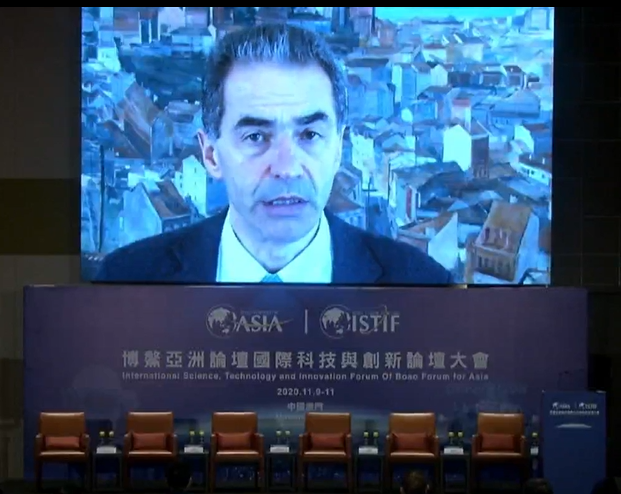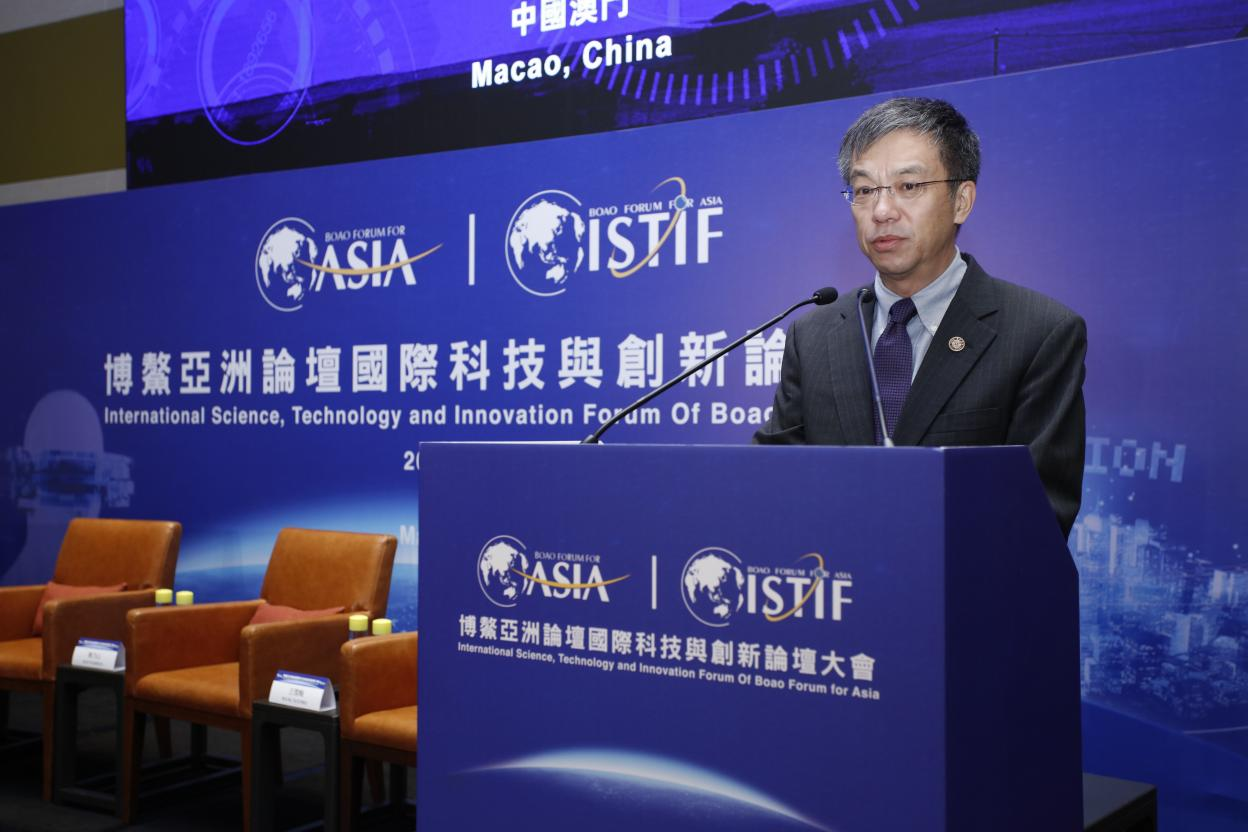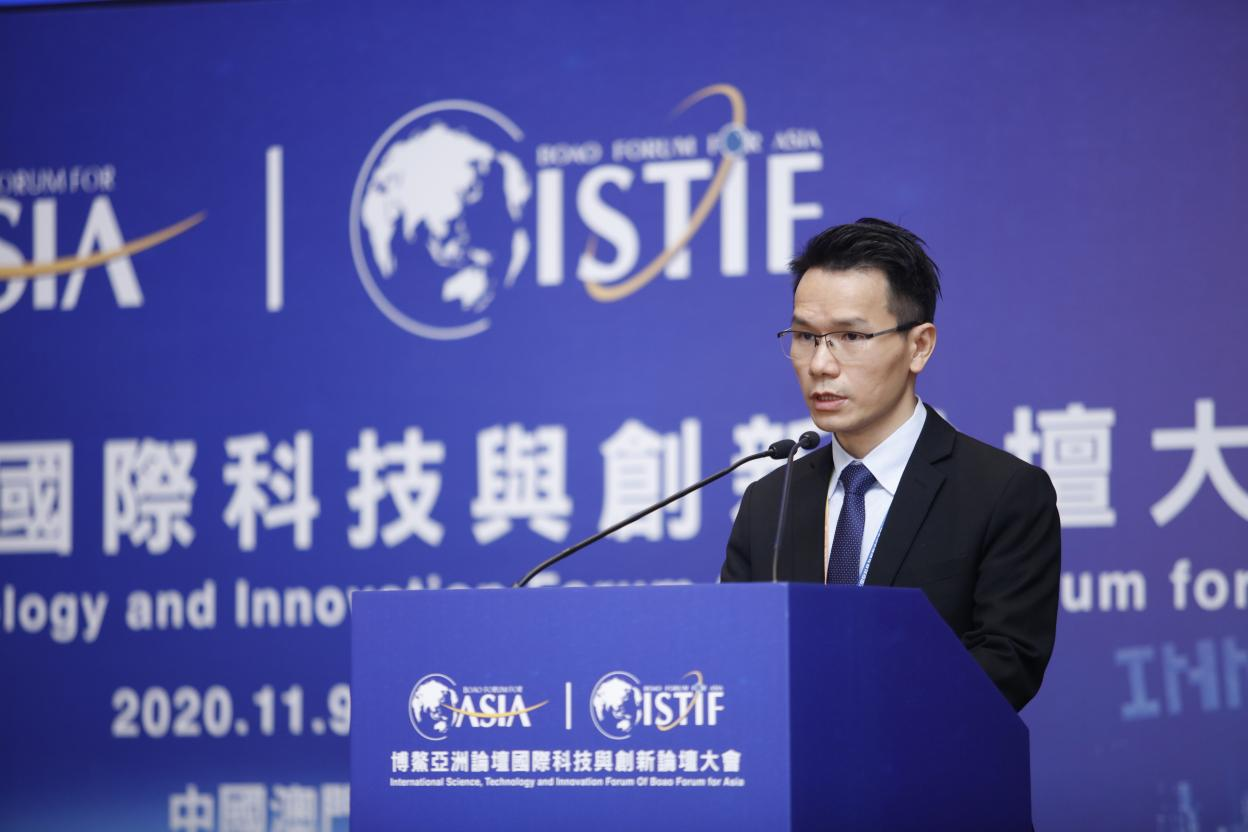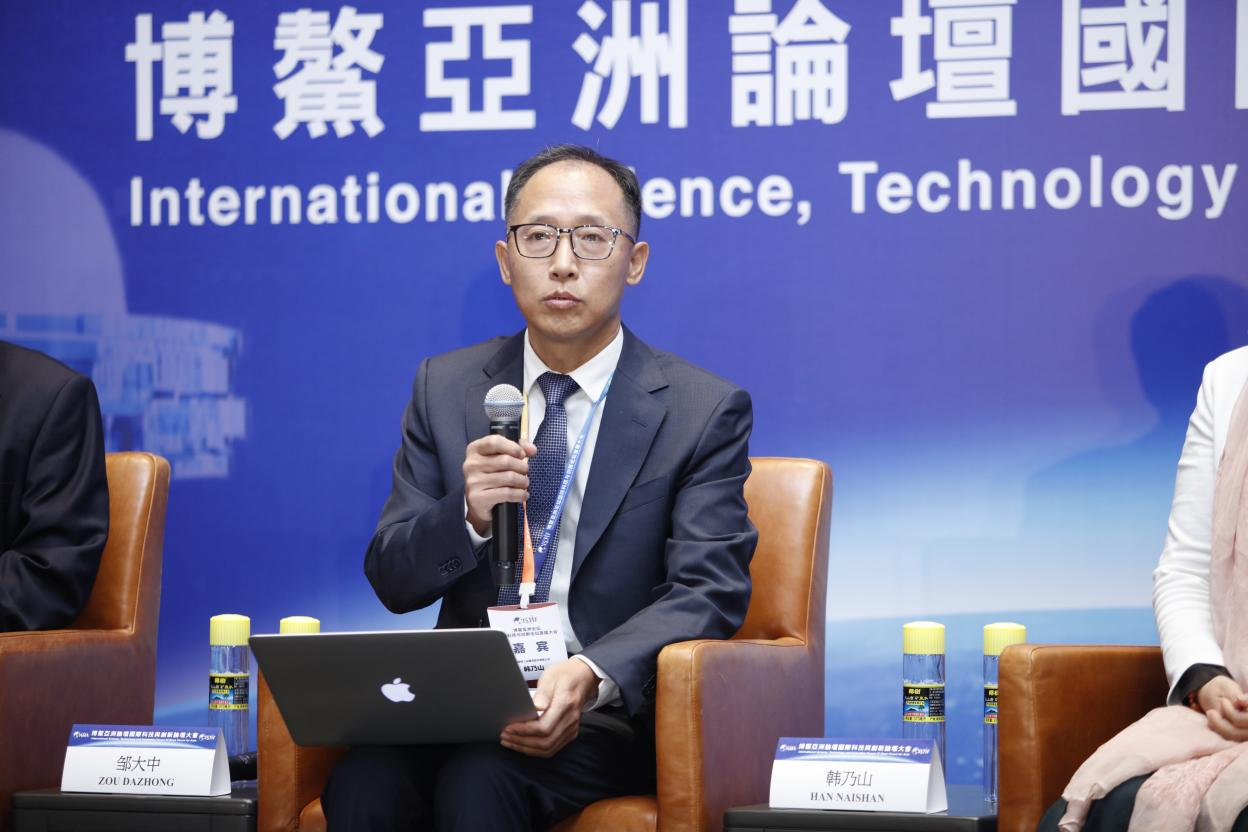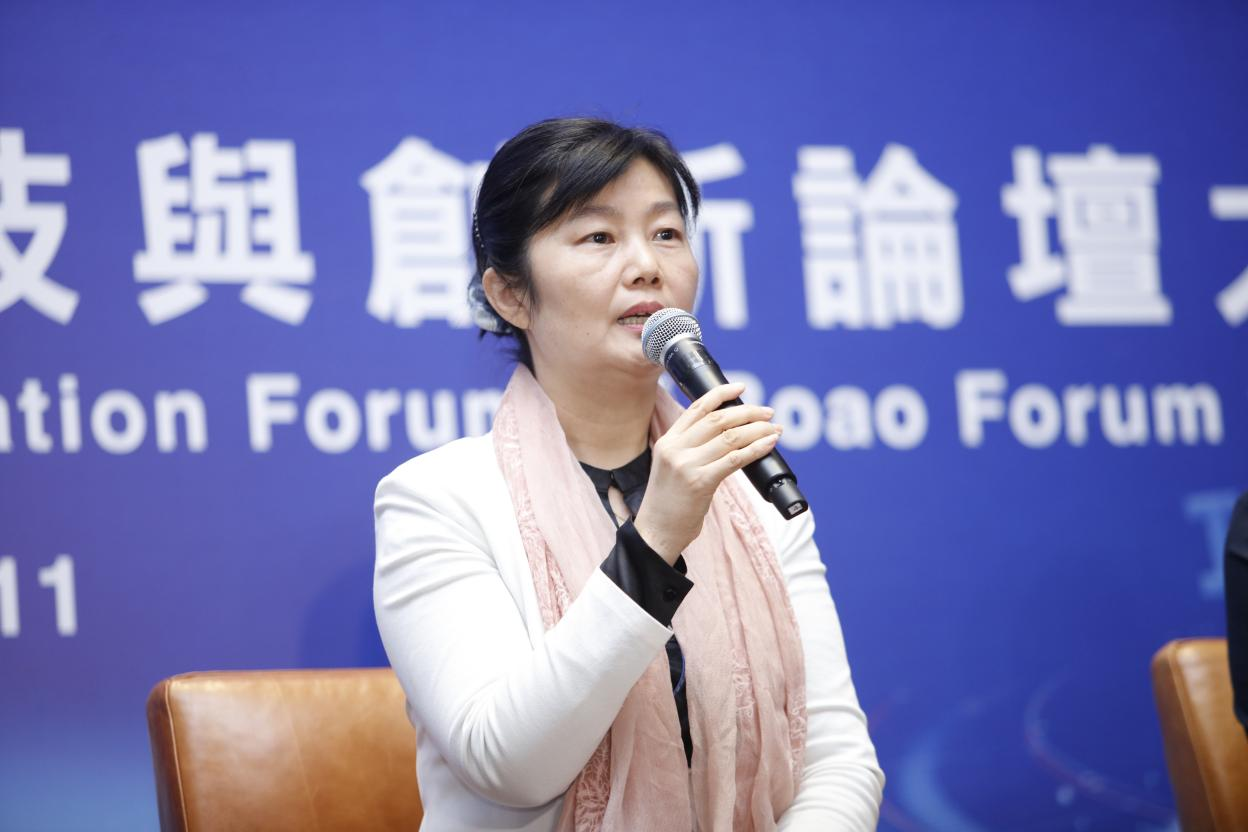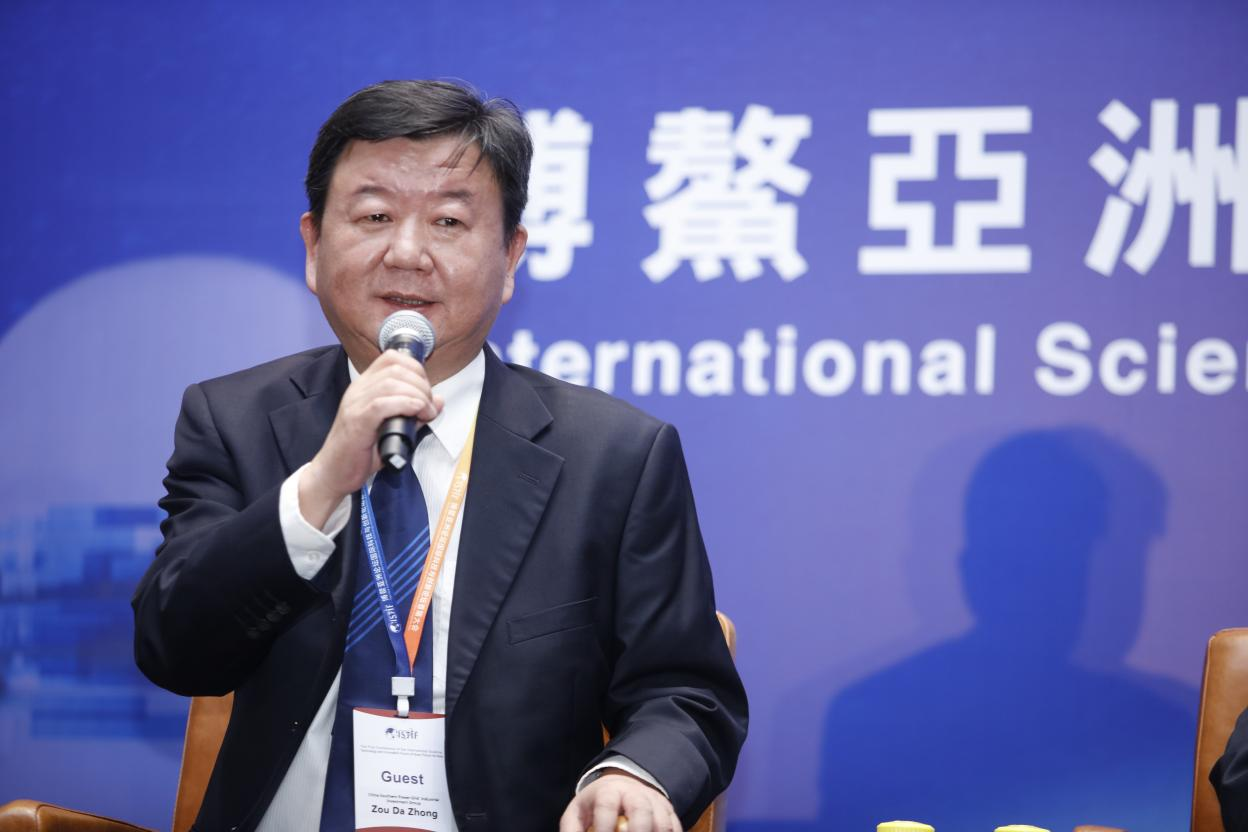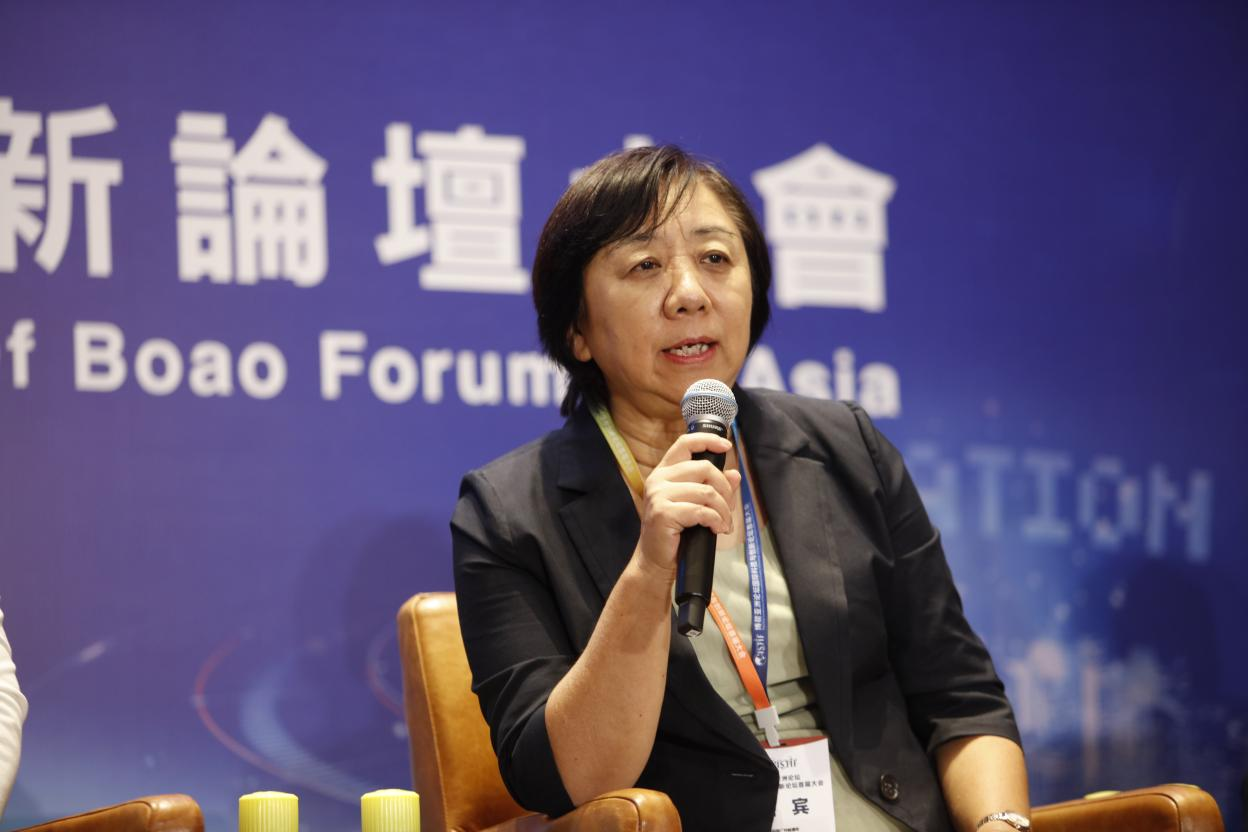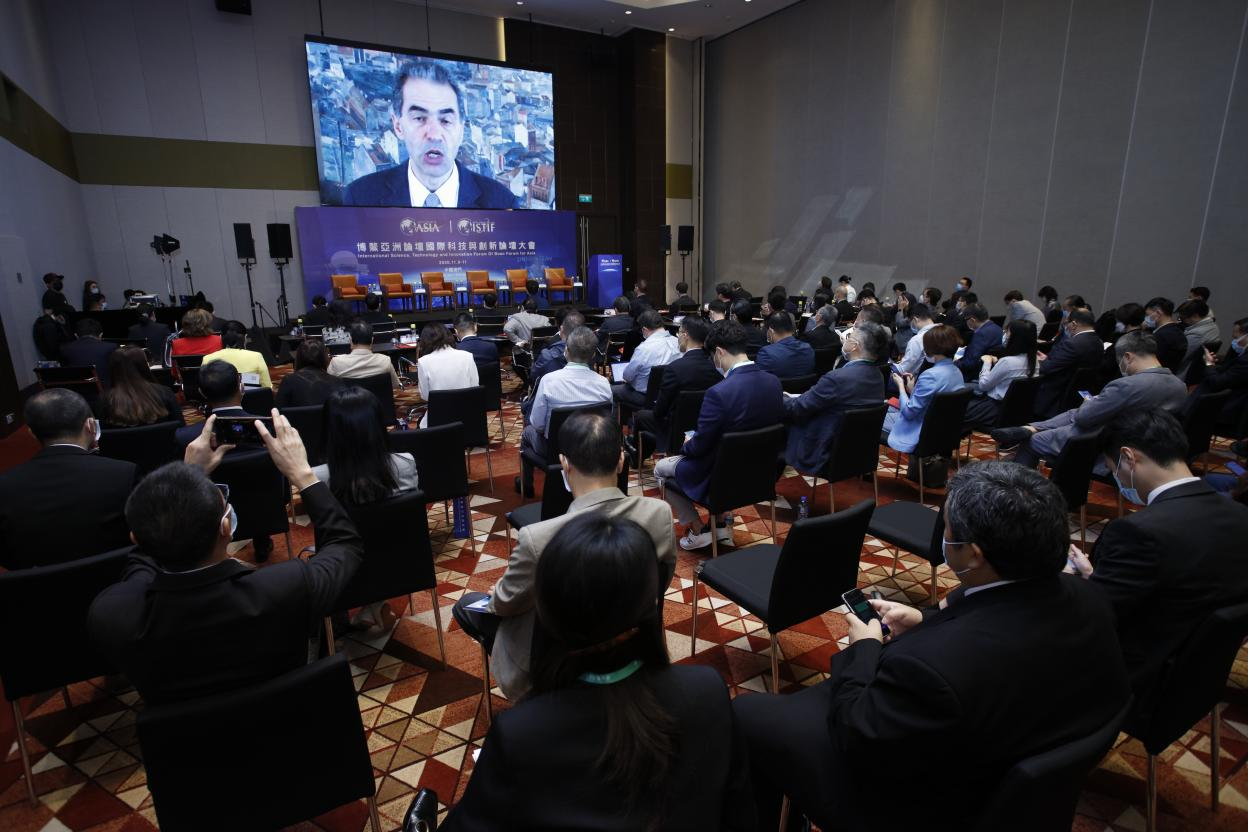Climate change is the greatest ecological crisis that currently humankind is facing. The core of combating climate change is to reduce greenhouse gas emissions. Chinese President Xi Jinping delivered an important speech at the general debate of the seventy-fifth session of the United Nations General Assembly on 22 September, in which he put forward China's latest goals and visions for combating climate change, namely, to achieve peak carbon dioxide emissions by 2030 and carbon neutrality by 2060.
Focusing on the new development concept, the session “Innovation and Life – Green and Low-carbon Transformation Oriented by Carbon Neutrality” invited representatives from governments, research institutes and industries to discuss green and low carbon transition under the goal of carbon neutrality, in order to build consensus, implement tasks and actions, and provide advice and suggestions for building a community of life on earth. This forum was moderated by He Jiankun, Professor of Tsinghua University (THU), Former Executive Vice President of THU and Vice Chairman of National Experts Panel on Climate Change. Manuel Heitor, Minister for Science, Technology and Higher Education, Government of Portugal; Tuvshin Badral, Ambassador of Mongolia to China; Shi Zongkai, Deputy Director of the School Council of Tsinghua University; Leong Weng kun, Director of Meteorological and Geophysical Bureau of the Government of Macao S.A.R. delivered speeches respectively, elaborating the significance of addressing climate change through carbon neutrality on global and regional sustainable development in terms of international cooperation in technological innovations and social co-construction.
Manuel Heitor pointed out that people are experiencing an unprecedented era, which is why this conference is of strategic importance on a global scale. He supposed that a better understanding of the close interaction between climate change and the new opportunities created by the digitalization of societies and economies is fundamental to balance all economic activities with the maintenance of the order of daily life in cities, and is essential to achieve sustainable human development. New technologies and perceptions, institutional innovations, multi-parties collaboration and new monitoring methods, such as satellite monitoring, can provide a wealth of valuable information.
Huang Jing, Director General of the Administrative Center for China’s Agenda 21, Ministry of Science and Technology of China; Han Naishan, Deputy General Manager of China Nuclear Engineering & Construction Corporation Limited; Wang Xuemei, Professor, Executive Director of the Institute for Low Carbon and Sustainable Development, Jinan University; Zou Dazhong, Chairman of CSG-Evlink; Zhao Daiqing, Researcher of the Guangzhou Institute of Energy of the Chinese Academy of Sciences; Zhou Jian, Professor of the Institute of Energy, Environment and Economy of Tsinghua University, discussed in-depth on the series of initiatives for realizing carbon emission reduction. The keynote speakers shared the contents of the Ministry of Science and Technology's report on the Fourth National Assessment of Climate Change, which addresses the medium and long term energy transition and carbon emission reduction survey findings in Guangdong-Hong Kong-Macao Greater Bay Area and other places. It is difficult to achieve deep carbon emission reduction at the current pace that requires scientific and technological innovation, institutional innovation, breakthroughs in key technologies, and infrastructure connectivity. Professional opinions and suggestions are put forward on changing the energy structure, increasing the proportion of electrification of transport and energy sources, advances in nuclear power technology and its application, distributed and efficient use of clean and renewable energy sources, intelligent grid peaking and storage, and controlling the incremental amount to reduce the amount of stock.
He Jiankun in his concluding remarks pointed out that nowadays the impact of climate change on the natural ecology and human society is increasingly strong. Climate change is a potential, long-term, profound crisis in the development of human society, which it is a global consensus to deal with. He called for view that addressing climate change should be put in the core of the economic recovery efforts in the post-epidemic era to promote the green recovery of the economy and low-carbon transformation. He believed that the future mode of economic development will be fundamentally transformed to achieve a green, low-carbon and recycling industrial system. The long-term goal of carbon neutrality will need to be supported by technological innovation and the active promotion of digitalization combined with decarbonization.

